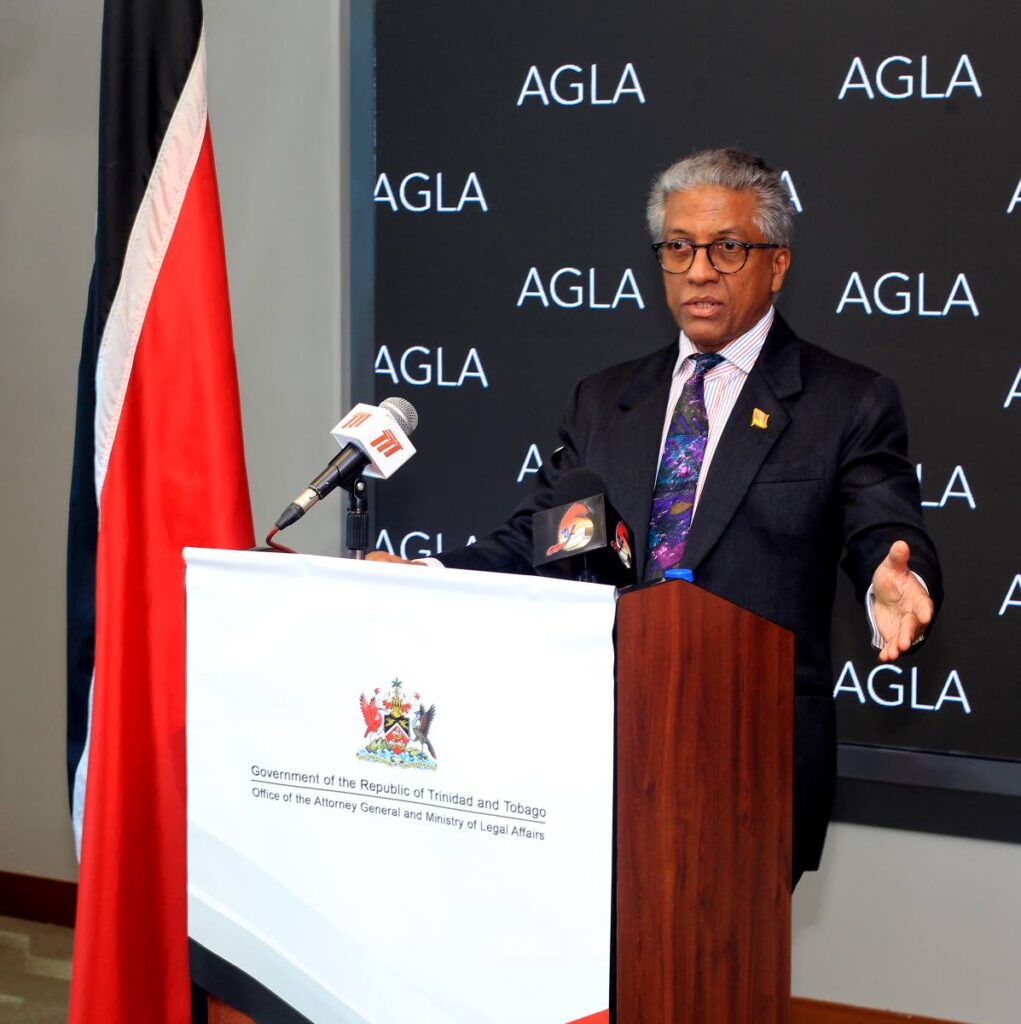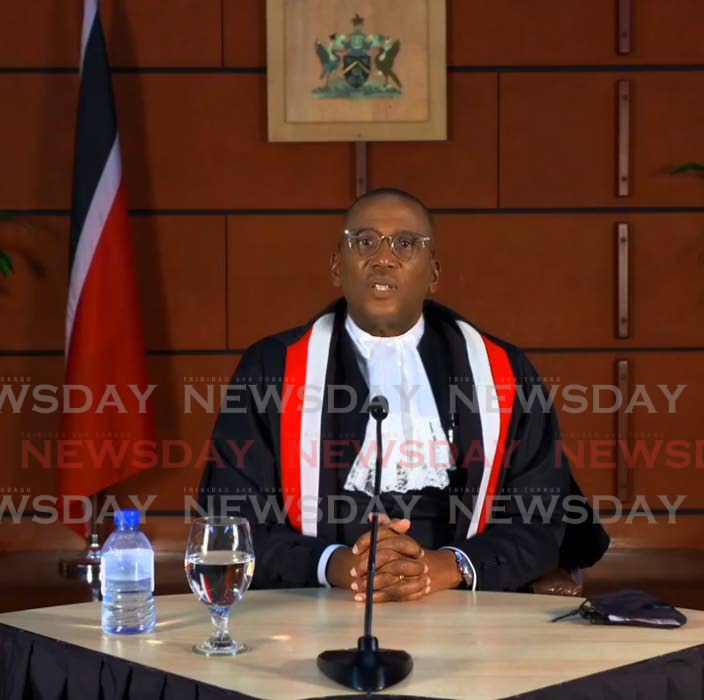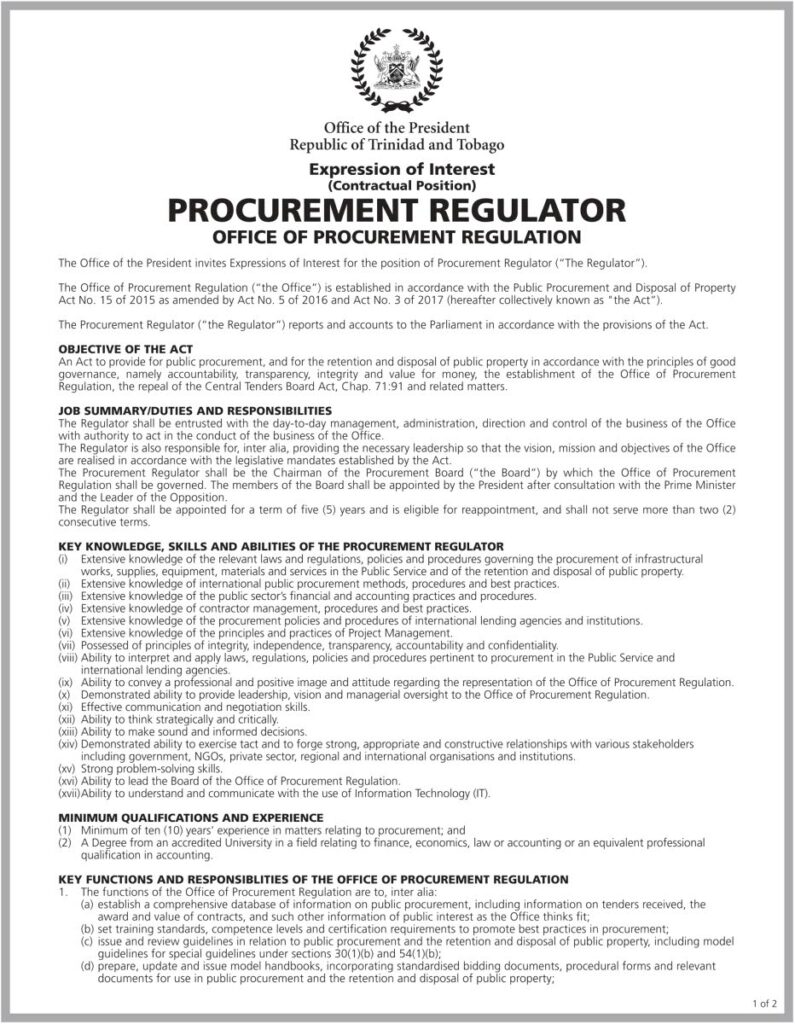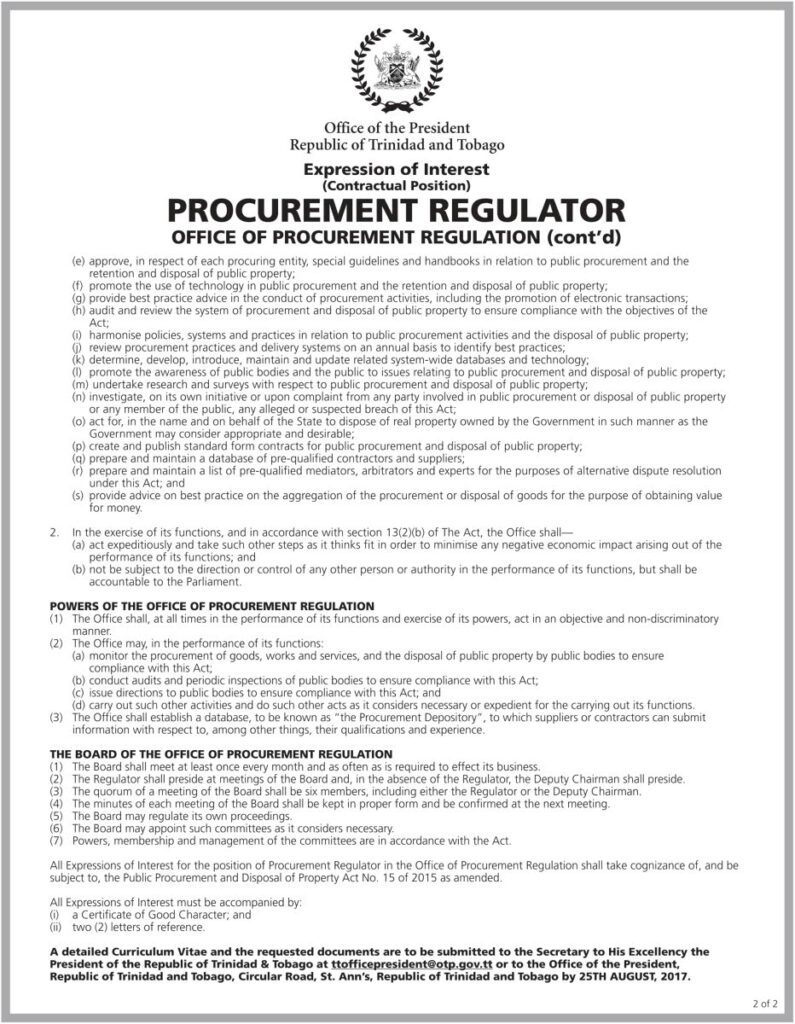Manufactured consent in new public procurement law?

AFRA RAYMOND
“Ambiguity and silence (are) the enemy of ethics and integrity.”¬ – Richard Bistrong
“‘Manufactured consent’ is supported by ‘…effective and powerful ideological institutions that carry out a system-supportive propaganda function by reliance on market forces, internalised assumptions, and self-censorship, and without overt coercion….’” – Noam Chomsky
The Public Procurement and Disposal of Public Property Act was fully proclaimed on April 26, which makes that one of our republic’s truly historic days by any measure.
I welcomed the decision to proclaim the act, since even with the damaging suite of 2020 exemptions, this is a tremendous step in the right direction of accountability, transparency and good governance so that we can achieve improved value for money in our public affairs. The private sector civil society groups wrote and lobbied for this important law, so this is the result of long-term, collective effort. We owe serious appreciation to those who persisted when this was a faraway vision.
That said, there are two important outstanding issues to be tackled at the outset: the reason for this delayed proclamation; and the proper appointment of an effective regulator to run the Office of Procurement Regulation (OPR).
On the first issue, this was Act No 1 of 2015, which was amended three times by the current PNM administration, with its enabling regulations approved by Parliament in February 2022. With all the legal stages completed, the implementation of this important new law was delayed for a further year by the exchange between the Attorney General and the Chief Justice. On April 12, 2022, AG Armour wrote to the CJ to request a checklist for implementation of the act, to which the CJ replied on May 25, 2022 with the Judiciary’s 29-page commentary.

On June 22, AG Armour hosted his first media conference to discuss the Judiciary’s “traffic-stopping” comments on the act and went further to advise that those concerns would have to be addressed before the act could be proclaimed. After I applied to both the AGLA and the Judiciary for that exchange of correspondence which was delaying the act, the Judiciary published its 29-page commentary on October 5, 2022.
Most of the commentary was devoted to criticisms of the act, which were not only out of order for an existing law, but the criticisms were seriously misplaced and entirely unsupported.
In my view, that exchange embodied a constitutional imbroglio, in that the AG was accepting the Judiciary’s unfounded criticisms of an important new law which had been passed by the Legislature. It seemed clear to me that the separation of powers was being violated. In these pages I challenged the Judiciary to either substantiate its critique or withdraw those in toto.
The AG insisted that the Judiciary had identified 19 serious areas of concern which would need to be resolved before the act could be proclaimed – see the AG’s statement to the Senate on January 25, 2023.
All of those serious concerns were made to vanish with the announcement on April 20 that the act was to be fully proclaimed on April 26.
I am requesting an explanation from both the AG and CJ on the stated objections to the new law. Have those concerns been resolved or rectified? If so, how was that accomplished? If those concerns have not been resolved or rectified, is it that the Judiciary’s 29 pages of “traffic-stopping” objections have now been quietly withdrawn?

The public was being asked to believe that the act was deeply flawed, with 19 concerns having been identified by the Judiciary. We are also now being asked to accept that the act is now in force, with no update as to how, if at all, those serious concerns were addressed. Hence my epigraphs and the reversal of title from the previous article; yes, this is what manufactured consent looks like.
It is unacceptable, in a matter of this importance, to let those strong concerns on this new law simply slide into oblivion. It is essential that we have a clear public statement explaining these mysterious shifts. The CJ and AG are both learned and high-ranking public officials, but they must know that we are not their “little friends” and that these are legitimate questions. You are working for us. You may be high-ranking, but you are accountable to us all.
On the second issue, the regulator’s position has been vacant since January 11, 2023, with no official indication as to when that vacancy is to be filled. The OPR is an important institution which needs capable and experienced leadership, so we need to have the regulator appointed without any further delay.


The inaugural regulator, Moonilal Lalchan, performed well, without any complaints or concerns being expressed, so his reappointment ought to be a priority if we are to operationalise this important new office to defend the public interest.
In the alternative, the President should activate a transparent process to appoint a suitable candidate – after all, the original appointment in 2018 was made after advertisements inviting applications with a closing date of August 25 2017. (see image attached)
The next in this series will deal with the damaging 2020 exemptions and the statements of the PM at his press conference on May 9.
SIDEBAR
Diary of a distraction
April 12, 2022 – AG asked CJ for implementation comments
May 25 – Judiciary responds with erroneous 29-pager, with no supporting citations whatsoever
June 22 – AG delays implementation, supposedly to consider the Judiciary’s unsupported submission
August 25 – OPR responds with comprehensive rebuttal of every one of the Judiciary’s misguided points, fully supported by sound citations
October 5 – Judiciary publishes its 29-page submission to the AG, under cover of its contrary press release
November 1 – High Court grants ex-parte leave to my lawsuit for the original letters between the AG and the CJ
November 18 – JSC meeting with MPs Keith Scotland and Terrence Deyalsingh quizzing the OPR on its research, which is all a part of this “manufactured dissent,” no such query having been made of the Judiciary. Monkeys know what tree to climb, it seems
January 13, 2023 – Case management conference for my judicial review case to seek disclosure of the AG’s letter of April 12, 2022 and the Judiciary’s reply of May 25, 2022. Timetable agreed, with ruling carded for May 15, 2023
January 25 – AG makes extensive statement to the Senate confirming his concerns over the 19 “substantial” points raised by the Judiciary
April 20 – Announcement of the impending full proclamation of the act
April 26 – Full proclamation of the act
May 9 – PM hosts press conference which opens with his responses to criticisms of the exemptions from the act
May 12 – Judiciary notifies me of delay, with ruling now carded for June 1
Afra Raymond is a chartered surveyor, managing director of Raymond & Pierre Ltd and a past president of the Joint Consultative Council for the Construction Industry (JCC).


Comments
"Manufactured consent in new public procurement law?"